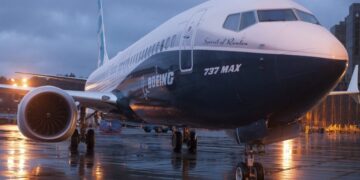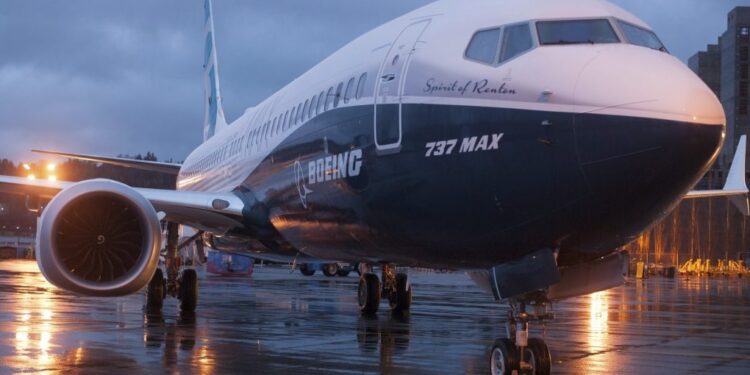Federal prosecutors have agreed to drop criminal charges against Boeing after the aerospace company reached a settlement over accusations it misled U.S. aviation regulators about the 737 Max before two fatal crashes killed 346 people. The deal, outlined in court filings on Friday, still requires final approval.
As part of the agreement, Boeing will pay or invest over $1.1 billion, with $445 million going to families of the crash victims. In exchange, the Justice Department will dismiss a fraud charge that could have threatened Boeing’s ability to secure government contracts.
“Ultimately, in applying the facts, the law, and Department policy, we are confident that this resolution is the most just outcome with practical benefits,” a Justice Department spokesperson said in a statement.
“Nothing will diminish the victims’ losses, but this resolution holds Boeing financially accountable, provides finality and compensation for the families and makes an impact for the safety of future air travellers.”
Boeing declined to comment on the matter Friday.
Families of those who died in the 2018 and 2019 crashes – one off Indonesia, the other in Ethiopia – have demanded a trial, prosecution of Boeing executives, and harsher penalties. The Justice Department acknowledged divided opinions among victims’ relatives regarding the settlement.
“This kind of non-prosecution deal is unprecedented and obviously wrong for the deadliest corporate crime in U.S. history,” said Paul Cassell, a lawyer representing many families. “My families will object and hope to convince the court to reject it.”
Javier de Luis, whose sister died in the Ethiopia crash, accused the Justice Department of abandoning efforts to deliver justice.
“The message sent by this action to companies around the country is, don’t worry about making your products safe for your customers,” he said in a statement. “Even if you kill them, just pay a small fine and move on.”
Prosecutors alleged Boeing withheld critical details from the Federal Aviation Administration about the Max’s flight control system, known as MCAS. The software, which automatically pushed the plane’s nose down based on a single faulty sensor, contributed to both crashes. After the second disaster, the Max was grounded worldwide until Boeing redesigned the system.
In 2021, Boeing faced charges for misleading regulators about MCAS and pilot training requirements. The company avoided prosecution by agreeing to a $2.5 billion settlement and compliance reforms. But last year, prosecutors said Boeing failed to meet those terms, leading to a guilty plea on fraud charges.
A judge rejected the plea deal in December, citing concerns over how an independent monitor would be selected under diversity policies. The new agreement requires Boeing to hire a compliance consultant to recommend safety improvements and report to the government.



































